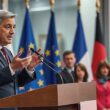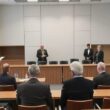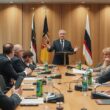Markus Söder, the Minister-President of Bavaria and a prominent figure within the Christian Social Union (CSU), has publicly and forcefully challenged President Frank-Walter Steinmeier’s recent suggestions regarding a potential ban on the Alternative for Germany (AfD) party. Söder’s remarks, published in Tuesday’s edition of “Bild”, represent a significant divergence in opinion within the German political establishment and underscore the complexities of addressing the rising influence of the far-right.
Söder asserted that pursuing a ban would be a strategic misstep, arguing that a failed legal process would inadvertently elevate the AfD, granting them a “false martyr status” and potentially fueling further radicalization. His stance reflects a growing skepticism within some conservative circles about the efficacy of blanket prohibitions as a solution to extremist political movements.
Instead, Söder emphasized the need for a policy-driven response, prioritizing a focus on addressing the underlying anxieties and concerns that have contributed to the AfD’s recent surge in popularity. He argued that a productive political approach focused on resolving societal problems – rather than resorting to legal restrictions – would ultimately diminish the party’s appeal. “Unzufriedenheit and Verunsicherung” he stated, “cannot be forbidden.
While firmly rejecting any possibility of collaboration with the AfD, Söder articulated serious concerns regarding the party’s core platform. He specifically criticized their calls for Germany’s withdrawal from the European Union and NATO, labeling these positions as a direct threat to the nation’s security and economic prosperity. This clear condemnation, alongside his resistance to a ban, positions Söder as advocating for a nuanced and potentially more challenging approach to managing the AfD – one that prioritizes political engagement and problem-solving over restrictive legal measures, while unequivocally denouncing the party’s fundamental ideology. The divergence of opinion between the President and Minister-President signals a potentially divisive debate within Germany’s leadership concerning the most effective strategies for confronting the rise of right-wing extremism.





